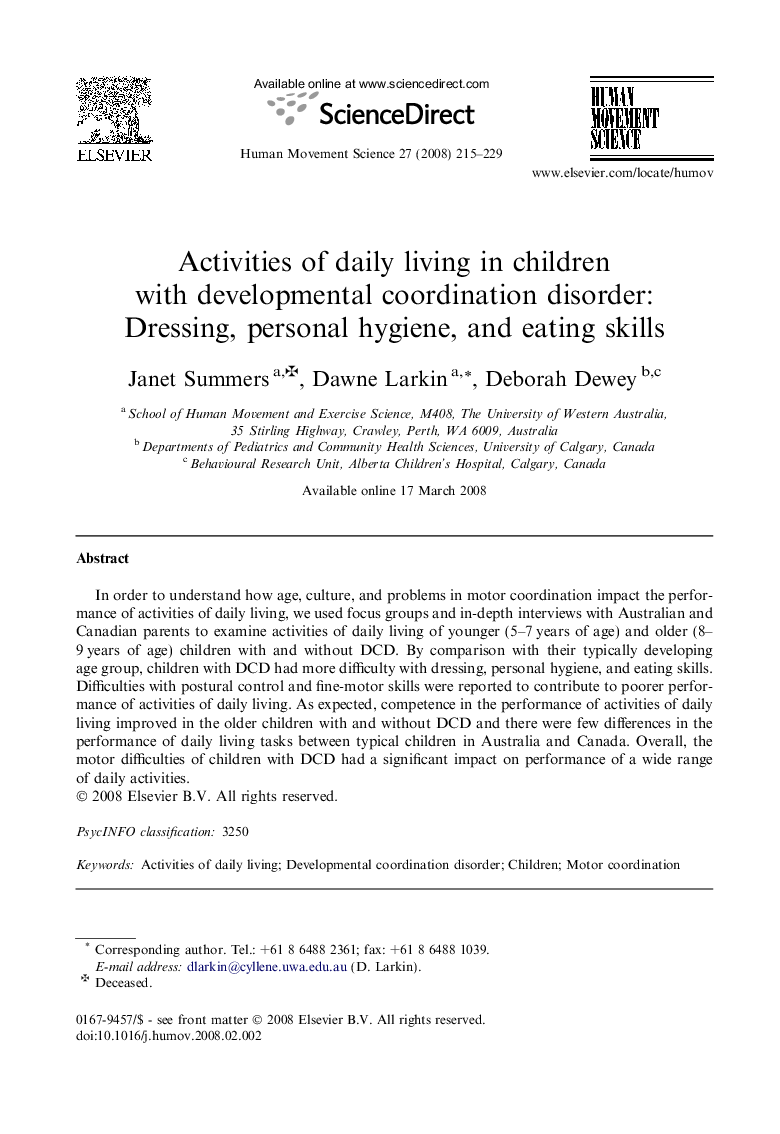| Article ID | Journal | Published Year | Pages | File Type |
|---|---|---|---|---|
| 928766 | Human Movement Science | 2008 | 15 Pages |
In order to understand how age, culture, and problems in motor coordination impact the performance of activities of daily living, we used focus groups and in-depth interviews with Australian and Canadian parents to examine activities of daily living of younger (5–7 years of age) and older (8–9 years of age) children with and without DCD. By comparison with their typically developing age group, children with DCD had more difficulty with dressing, personal hygiene, and eating skills. Difficulties with postural control and fine-motor skills were reported to contribute to poorer performance of activities of daily living. As expected, competence in the performance of activities of daily living improved in the older children with and without DCD and there were few differences in the performance of daily living tasks between typical children in Australia and Canada. Overall, the motor difficulties of children with DCD had a significant impact on performance of a wide range of daily activities.
